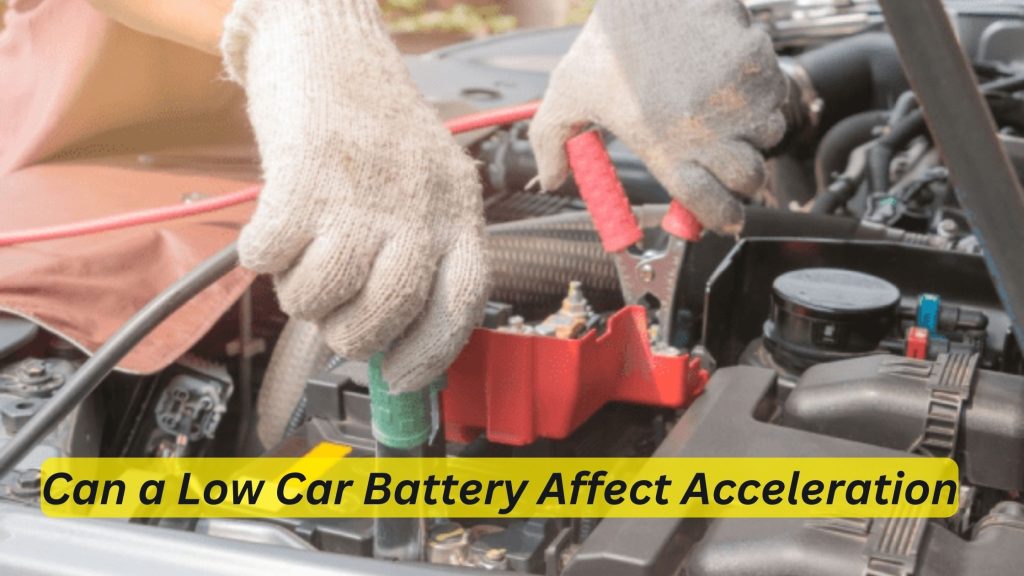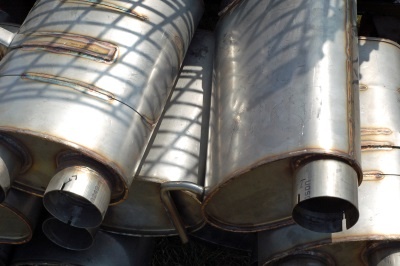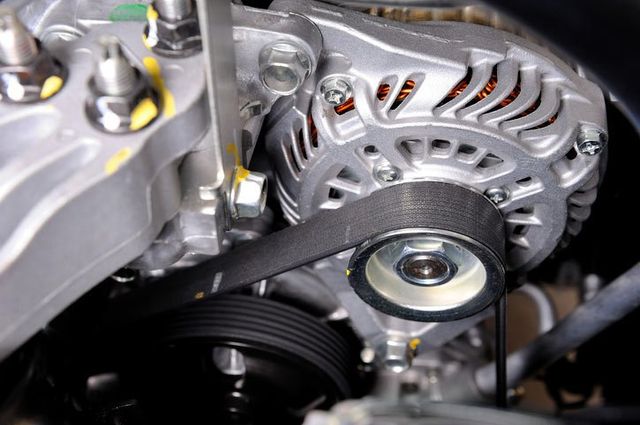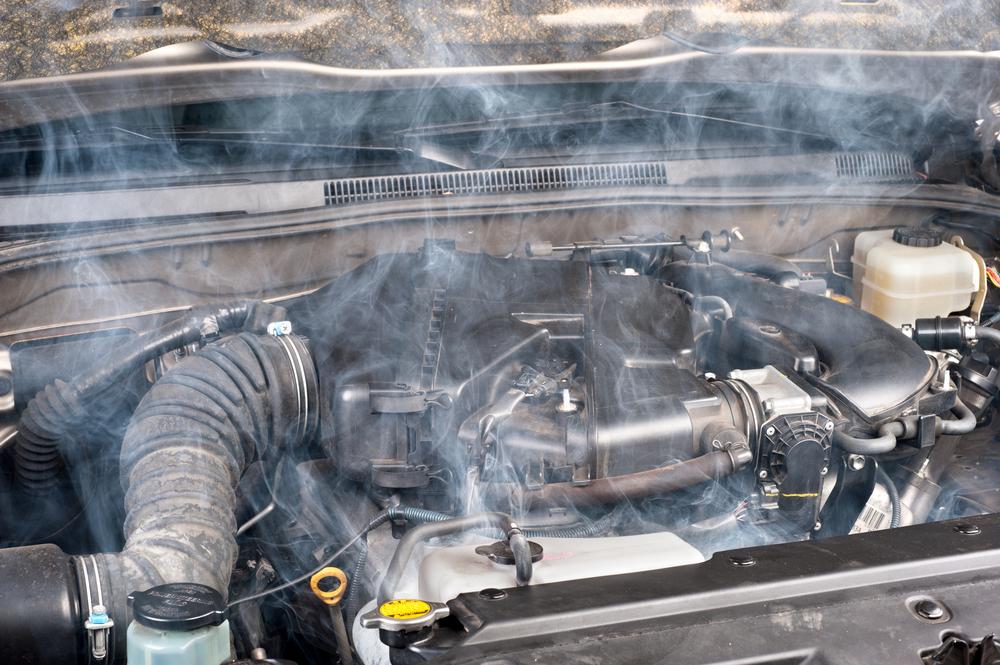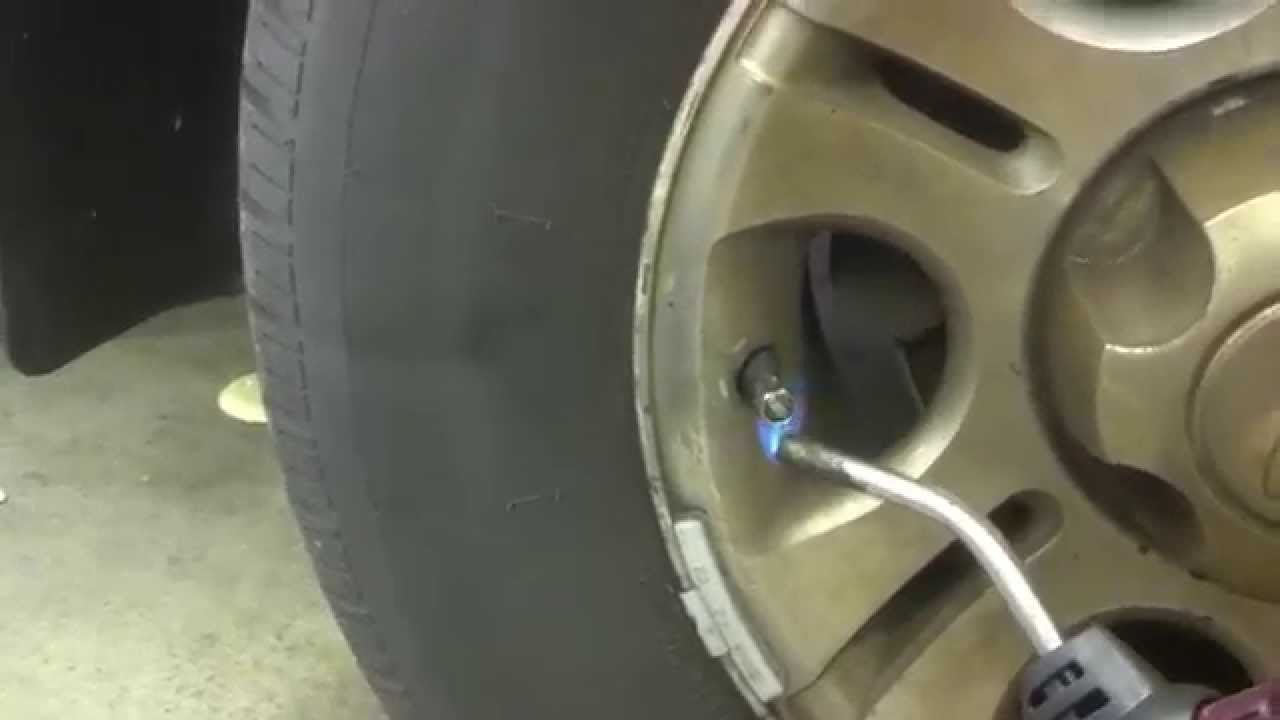Does Car Battery Affect Acceleration
A car battery does not directly affect acceleration. It primarily provides the electrical power necessary for starting and running electronic components.
Grasping the role of a car battery in vehicle performance is vital for automotive enthusiasts and everyday drivers alike. The car battery serves as the electrical heartbeat of your vehicle, mainly tasked with starting the engine and powering electronic accessories when the engine is off.
Although a healthy battery is crucial for a car’s reliable operation, it is not a component that influences the power or speed at which a car accelerates. Instead, acceleration is largely determined by the engine’s performance and the powertrain’s effectiveness in transferring this power to the wheels. Ensuring your car battery is in good condition is key for seamless vehicle operation, but for advancements in acceleration, focus on engine health and maintenance is paramount.
The Role Of A Car Battery
A car battery does more than start your vehicle. It plays a critical role in overall performance. Understanding how it can affect your car’s acceleration opens the door to optimum vehicle operation.
Energy Source For Electrical Components
Imagine all the modern features in a car—infotainment systems, lighting, air conditioning. All these depend on the battery. A weak battery means weak performance of these components. While a car battery doesn’t directly influence acceleration, it powers the systems that help your engine work efficiently.
- Headlights and interior lights
- Infotainment and navigation systems
- Electronic fuel injectors
Initial Spark For Engine Ignition
An engine needs to start before it can accelerate. The battery provides the essential spark for ignition. Without a strong spark, engines may struggle to start or perform at peak levels. Once the engine runs, the alternator recharges the battery. This cycle suggests a healthy battery is key for consistent acceleration and engine power.
- Provides spark to start the engine
- Helps in smooth engine operation
- Recharges via the alternator during driving
Acceleration Basics
Ever wonder what gets your car going from a standstill to cruising speed? It’s all about acceleration. Acceleration is how fast your car can pick up speed. A healthy car battery is a key player in this process. Let’s dive into the mechanics and learn more.
Mechanics Of Car Acceleration
At its core, acceleration involves converting fuel into motion. This happens in several steps:
- You press the gas pedal: This sends a signal.
- Fuel enters the engine: An exact mix of fuel and air creates power.
- The engine turns: This rotation gets things moving.
- Gears shift: Your car finds the right speed.
So, where does the battery come in? It starts the engine and powers electrical systems—ensuring these steps happen smoothly.
Electronic Systems And Performance
Your car’s battery also impacts acceleration indirectly. Electronic systems support performance. These include:
| System | Function |
|---|---|
| Fuel Injection | Manages the fuel entering the engine. |
| Ignition System | Starts the combustion process. |
| Engine Control Unit (ECU) | Tunes performance for efficiency and power. |
A weak battery might slow these systems down. This can lead to sluggish acceleration. All things equal, a strong, healthy battery supports better car response.
Impact Of A Weak Battery
The impact of a weak battery on a car’s performance is often underestimated. It goes beyond just the ability to start the engine. A failing battery can, in fact, affect your car’s acceleration and overall driving experience. Underestimation of the role a car battery plays in your vehicle’s functioning is a common oversight. Let’s look into how a compromised battery can actually put a strain on a car’s electrical systems and influence the power supply, ultimately affecting the vehicle’s response and acceleration.
Strain On Electrical Systems
A car’s battery is the powerhouse for all its electrical components. When the battery is weak, components like the starter motor and ignition system have to work harder to draw the necessary power. This additional strain can lead to sluggish performance and reduced efficiency. Essential functions such as headlights, dashboard lights, and infotainment systems may also be hindered, leading to a less optimal driving experience.
Insufficient Power Supply And Vehicle Response
The correlation between the battery and vehicle response is critical. A weak battery means an insufficient power supply to the engine’s control unit, the brain behind acceleration and performance. Consequently, the fuel and air mixture in the combustion engine isn’t optimized, which can result in poor acceleration. Recognizing the signs of a failing battery can help maintain the desired vehicle response and prevent sluggish acceleration.
- Slow engine crank: A clear sign that the battery may be weak.
- Dashboard warning lights: They illuminate when the battery is underperforming.
- Dimming lights: Both interior and exterior lights may lack brightness.
- Electrical issues: Flickering screens or malfunctioning accessories.
Timely battery checks and maintenance ensure optimal vehicle performance. Ignoring warning signs can lead to a compromised driving experience. Keep regular tabs on your battery’s health to avoid unexpected power issues and ensure your car accelerates smoothly and reliably.

Credit: insideevs.com
Performance Batteries And Acceleration
Imagine your car as a star athlete. Like how good food fuels a runner,
your car’s battery powers its performance. Performance batteries
are the secret sauce for your car’s quick acceleration.
They send energy fast to make your car zoom quicker. Let’s explore how they do it.
Advantages Of High-performance Batteries
Stronger and faster – these words describe what performance batteries can do.
They are built to work harder and last longer. Below are their key benefits:
- Quick Charge: They charge super fast, so you wait less and drive more.
- Long Life: These batteries stay strong over many years.
- Consistent Power: Your car gets smooth energy all the time.
- Cold Weather Ready: They start your car easily on freezing days.
Case Studies: Battery Upgrades And Car Speed
Upgrading to a performance battery can mean better car speed.
Look at these real stories showing the power of a battery swap:
| Car Model | Old Battery | New Performance Battery | Speed Difference |
|---|---|---|---|
| ZoomVroom 3000 | Standard | High-Capacity | 20% Faster |
| FlashRunner GT | Basic | Advanced Tech | 15% Quicker |
Studies show that with the right battery, your car wakes up and jumps to speed.
These upgrades prove that a solid battery swap adds zest to your car’s step.
Troubleshooting Acceleration Issues
Imagine pressing the accelerator, but your car crawls forward without that usual zest. This can be frustrating and confusing. Targeting the right culprit requires a bit of detective work.
Identifying Battery-related Problems
Battery performance impacts your car’s electrical system. A weak battery might be the sneaky cause of slow acceleration. Let’s discover how to spot these issues:
- Sluggish engine crank: A slow start signals battery trouble.
- Dim lights: Flickering or weak lights may indicate a battery on its last leg.
- Warning lights: A lit dashboard battery icon shouldn’t be ignored.
- Electric malfunctions: Stalling accessories hint at a struggling battery.
Use a multimeter to check the battery voltage. A reading below 12.6 volts suggests a charge issue. This can affect fuel injection and, therefore, acceleration.
Common Misconceptions In Acceleration Hiccups
Oftentimes, people blame the wrong car parts for poor acceleration. Identify truths and myths around acceleration hiccups here:
| Myth | Truth |
|---|---|
| Batteries provide engine power. | Batteries aid in starting the engine, not powering it. |
| Bigger batteries boost acceleration. | A suitable battery size is key, bigger isn’t always better. |
| Acceleration issues always mean battery replacement. | Several factors, not just the battery, affect acceleration. |
Remember, other elements like fuel systems, engine performance, and transmission health play roles in seamless acceleration. A full diagnosis by a professional is often necessary to pinpoint the exact issue.
Maintaining Optimal Battery Health
The health of your car battery can have surprising effects on your vehicle’s performance. While it doesn’t directly influence acceleration in the traditional sense, a failing battery can lead to poor function of electrical components. This can indirectly affect acceleration by hampering the fuel injection system or the electronic throttle control system. Keep your battery in tip-top shape with these crucial strategies:
Regular Checks And Balancing
Regularly inspect your car battery to ensure it is functioning well. Schedule monthly checks on the battery’s terminals, cables, and casing. Look for signs of corrosion or wear. Use a multimeter to check voltage levels and verify they align with optimal performance standards. Keep the battery tightly secured in its mount to prevent vibrations from affecting its lifespan. Proper balance in your car’s electrical system helps maintain battery health and prevents unwanted power drains.
Upgrading Charging Systems
Modern vehicles come equipped with advanced charging systems. An upgraded charging system ensures your battery charges efficiently, improving overall vehicle performance. Consider investing in a smart charger that adapts to your battery’s needs—providing a full charge without overcharging. Quality charging systems maintain optimal charge levels, which support strong starts and steady acceleration.
Best Practices For Extending Battery Life
- Avoid short trips as they prevent a full charge cycle.
- Turn off electrical accessories when the car isn’t running to save battery power.
- Ensure a clean battery surface to prevent energy leaks caused by dirt accumulation.
- Regularly service your vehicle to keep the charging system in check.
- Use a battery maintainer if storing your vehicle for extended periods.
Following these simple practices can help you avoid a sluggish acceleration response from a poorly performing battery and ensure your car is always ready for a powerful drive.
Frequently Asked Questions For Does Car Battery Affect Acceleration
Can A Weak Battery Slow Car Acceleration?
A weak battery can indirectly affect car acceleration. While the battery itself doesn’t control acceleration directly, insufficient electrical power can lead to poor performance of the ignition system and fuel injectors, which in turn may cause sluggish acceleration.
Does Battery Health Impact Vehicle Performance?
Yes, battery health is crucial for overall vehicle performance. A healthy battery ensures the proper function of electronic control systems. These systems are vital for engine management and optimal car operation, which includes acceleration.
How Does Car Battery Condition Affect Engine Power?
The car battery condition affects engine power by powering the ignition system and other critical electronic components. A failing battery may lead to weak spark generation, resulting in inefficient combustion and reduced engine power.
Will Replacing My Car Battery Improve Acceleration?
Replacing your car battery can improve acceleration if the old battery was failing. A new battery ensures consistent power to the electrical systems, allowing for proper fuel delivery and ignition timing, which are vital for quick acceleration.
Conclusion
Understanding the impact of your car battery on acceleration clarifies an often-misunderstood aspect of vehicle performance. While the battery itself won’t boost your speed, it’s critical for starting the engine and powering electrical components. Ensure regular maintenance for optimal functionality and seamless driving experiences.
Keep your journey powered and your acceleration smooth by prioritizing battery health.

